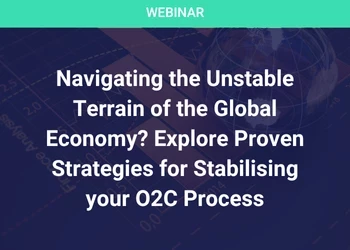Explaining the Art of BPO
Add bookmarkPuneet Chandra has just celebrated his 10th year at Wipro’s BPO division. Having originally joined a company called Spectramind, it was acquired by Wipro in 2002. When he joined it was the early stages of outsourcing for third party players in India. Having operated his own manufacturing company for over a decade, he had more than the necessary tools to take on his new responsibilities, which have spanned across Transition, Operations and the development of a Center Of Excellence for Wipro’s Global Back Office Processes. He currently manages shared services operations for global clients in the areas of FAO, HRO and Procurement & Supply Chain across multiple delivery centers based in India, USA, Philippines, Romania, Poland, Brazil and Australia.
Puneet speaks to SSON candidly about the state of the Outsourcing Industry, the highs and lows during the last decade at WIPRO and the qualities which set them apart from other BPO players in the field...
* View all content in the Order to Cash Series
SSON: Puneet, what has the main highlight been for you in your last 10 years working at Wipro?
Puneet Chandra: I guess from an early day’s standpoint, Wipro was in the right place at the right time, with the right product. I think that’s a winning combination which rarely happens. It was early 2001 when the voice business really took off in India and we were very well positioned to benefit from that sudden demand. The first large scale process was tech support for Dell, and I don’t think we ever looked back from then. I would say that was a highlight.
SSON: And the lows…..?
PC: The main lows over the past 10 years probably occurred during the transition period from the management of Spectramind across to Wipro. I think any company that goes through that change has to cope with fallouts of all kinds. But, I would say that has really been the only low during my last ten years. Once the transition and the fallout was over the ride has been fantastic.
SSON: So what advice would you give to organizations that are currently going through similar transition periods, whether they are outsourcing services to a BPO like Wipro, or implementing shared services?
PC: Client maturity in outsourcing and the type of activity being outsourced used to determine if it was merely a cost saving exercise or not. Historically, companies looked to outsourcing purely for labor arbitrage. This was a low-value, task-oriented approach and not a partner relationship. The arrangement was just to get the job done at a lower cost – my mess for less.
I can think of an engagement with Bank of America in 2002. Very interestingly it was a mature decision which created a mature relationship. The approach was not just cost arbitrage nor that, typical of a vendor - the approach was focused on a partnership– which would essentially bring benefits to both organizations.
They wanted an efficient mortgage process and had a stated business improvement goal. Besides a process redesign we leveraged the time difference, human capital and technology to its fullest as they gave us the space and freedom. This resulted in them achieving the business goal of getting the mortgage loans off their books within the stated timelines.
Having clear cost and business objectives is key to getting for any SSC.
SSON: So basically an example of a company that embraced change and used it in a really positive way.
PC: Absolutely. I think we were the trendsetters for them. We were the ones who proved to the Bank that BPO is possible. I think today, more customers are coming to us and asking us to explain the art of BPO.
SSON: And to the art the BPO - how can an organization that is looking to outsource successfully achieve operational excellence and cost optimization through business process outsourcing?
PC: It is definitely about partnering. There is never a chance that I will know a client’s business better than they know their own business, at the initial stages. What we bring to bear is simplifying any process, purely because we are looking at it completely with a fresh set of eyes with no baggage, besides the fact that our daily bread comes from understanding process. We use six sigma, lean and service manufacturing concepts to improve them on a continued basis. We are not scared to recommend changes because many of those suggestions come with prior experience on managing the change.
We understand what works and what doesn't. We bring a lot of technology tools as a result of our years of experience, followed by knowledge of historical failures and successes I think operational excellence will happen on its own when we have a partner approach and work as equals with trust, with common objectives. Emotional management is a very critical component of managing the change in outsourcing.
SSON: From where you stand, how do you think ‘this change’ or outsourcing of services affects the rest of the client’s business? And how long does it take before a client experiences initial results?
PC: Let me answer the latter question first - So, how long does it take to see results? Typically in my area, which is made up of the back office corporate business services, such as finance and accounting, procurement, HR and order management - where I am impacting the revenue or expense cycles, the HR or procurement business - in those areas I would say the change is visible in 9-12 months.
Looking at how it impacts the client's business. Since everything is interlinked in most companies a positive movement in one area will surely bring about a positive change elsewhere. Better order management will result in faster billing, better AP processing will result in on time payment, no duplicate payment, better payroll will make an employee smile.
But for me to be able to do that, as a third party provider, I must have access to business owners, to understand the pain points so our efforts are directed towards solving them. Getting access to and creating a forum off business owners, at an early stage, during the engagement helps in identifying and hence positively impacting my clients business.
SSON: So did the recession put more pressure on BPOs like Wipro to demonstrate results faster, in order to gain and maintain business?
PC: I think a lot of people stood up and heard what we had been saying for a long time, which is, we are not here just for giving you labor arbitrage. We can positively impact your business and help you make better business decisions. We can assist by helping you to run your business more efficiently as a result of you outsourcing to us because of the analytics we deploy to create meaningful information from data.
So during the recession people began to listen to us a lot more. Did it put pressure on us? Yes, business placement got tighter, people wanted payback periods within 14 - 15 months. They wanted to be business case neutral in the first 12 months. And we got creative to meet those expectations. The recession was a good thing for us.
SSON: That leads on quite nicely to another question – improving and accelerating business performance is currently what organizations are currently striving for rather than labor arbitrage, how is Wipro assisting with that?
PC: Labor arbitrage is where the game started. However, that’s changed over the years. As service providers have matured, competition has increased and service lines have become commoditized, everyone has tried to find the way to go up the value chain. As you go up the value chain, the biggest challenge is creating the value and visibility to it and hence creating value for yourself. For any outsourced process that’s not commoditized, unless you can show the value as a third party service provider, customers will not bite.
Wipro uses the following to provide value to its customers:
- A holistic approach to transformation – People, process, technology and policy interventions.
- Culture of innovation from grassroots to Black belt-led, project-based changes.
- Knowledgeable and enthusiastic delivery teams with critical mass in all continents.
- Leveraging the power of IT & domain knowledge for process transformation.
- Base))) – Wipro’s powerful toolkit that enables business goals delivery and facilitates nimble changes in direction. Base))) is an integrated suite consisting of case management, rules engine, business insights, exception management, analytics, workflow and ERP integration.
- Transformational front office solutions with cutting edge work in speech, text analytics and social media.
Wipro’s toolset gives organizations visibility into their business processes that can then help make better business decisions. In the area of finance and accounting, the toolset can help companies cut down DSO, reduce unapplied cash, and smooth out cash flow. These kinds of toolsets are not available as a packaged off-the-shelf product.
Using very simple principles, used in the manufacturing world, such as TPS, Lean and Six Sigma, we have redesigned business processes, keeping the end view of business impacts. This methodology is being called 'service manufacturing'. These processes have been enabled using state of the art technology tools that are completely integrated and are the backbone of any shared services center operated by Wipro.
SSON: So, what causes a partnership to sometimes go wrong?
PC: Lack of trust. Trust is a result of open communication and impeccable delivery. There has to be open communication at the correct levels – so from a day- to-day operational level to CXO level, procurement level or at a contract management level. Once there is trust, I think then the relationship flourishes.
SSON: SSON will be hosting the 13th annual Asian shared services and outsourcing week in Singapore at the end of September, what developments do you think lie ahead for shared services and outsourcing in the East within the next five years?
PC: The 'what and how' of outsourcing has changed significantly over the past years. In yesteryears, what was considered core was kept in-house or put into a captive center. Bulk of the outsourcing to third party vendors was fragmented and limited to transaction processing.
Now, end-to-end process outsourcing to third party vendors is already a reality. Moreover, the creation of multi- tower, multi-country SSC in the third party domain is fast gaining momentum. The ability of providers, like ourselves, to manage process, technology and provide business solutions will aid this movement further.
Further we see the start of, in a small way, Business Function Outsourcing instead of process outsourcing. Some of our clients have already been working with us to achieve this long term objective.
SSON: Thank you for that overview, Puneet. Sometimes it’s difficult for buyers to differentiate between different players in the market because obviously there are so many. What do you think differentiates Wipro from other Indian providers such as Genpact, Infosys and WNS? What makes Wipro unique?
PC: There are very fine lines that divide all of these players. Firstly, we have stuck to our philosophy in that we are not only here for labor arbitrage. We are here because we think we can sincerely make an impact to our clients business and we have worked on tools over the last three years to make sure that we give clients confidence and the level of transparency that they are looking for to run their business and make decisions.
Secondly, we are in a unique position where we have enormous global scale in both the front office and back office space in BPO. Most of our competition is either strong in the front office or the back office business. We can, to our customers, offer a range of services that competition just will not be able to offer under one roof.
Thirdly, there is a huge benefit which is still not realized, which is IT BPO integration, by which I don’t mean just implementing ERP. It is the ability to make ERP changes to implement a process change. Winning in BPO is all about more efficient and effective processes. Having control over the technology platform is essential to bring about an effective process.
Lastly, Wipro’s ability to combine different service lines across the globe in a coordinated way breaking the silo approach of most competition is HUGE advantage to clients.





















